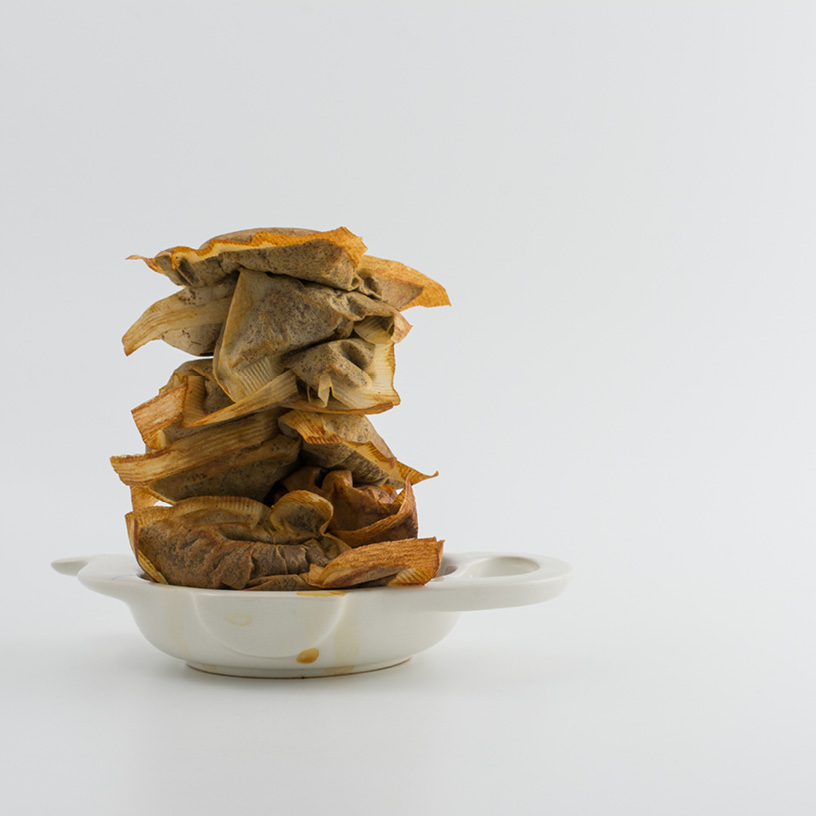Have you heard about the recent discussion on microplastics in teabags? A recent study published in the Journal of Environmental Science & Technology* has found single tea bags can release close to 12 billion microplastic particles and more than 3 billion even smaller nanoplastic particles into the water of your cup of tea. These levels were described as being thousands of times higher than seen in other foods.
Personally, I don’t want to consume anything involving plastic in contact with hot water. It’s why I prefer ceramic or glass tea cups, mugs, teapots or stainless steel diffusers. If you’re like me, you also don’t want to be contributing to the demand for plastic products to be manufactured (especially single-use plastic), nor do you want to contribute to the release of microplastics into the environment.
WHAT ARE MICROPLASTICS AND WHY ARE THEY BAD FOR YOU?
Microplastics are small pieces of plastic less than 5mm in length. They are found in a variety of products, including cosmetics, synthetic clothing, plastic bags, bottles and some teabags.
In the Environment:
These plastics contain chemical additives that leach out after entering the environment and are not recyclable or biodegradable, therefore as opposed to breaking down, they accumulate.
Microplastics have been found in oceans, freshwater ecosystems and in the air. Zooplankton ingest the plastics which then work their way up the food chain to fish, birds and humans (bioaccumulating). It now seems ubiquitous in the environment, so much so that they have been detected in drinking water, beer, seafood and salt.
In People:
The effect on humans of ingesting microparticles in our tea is still uncertain, however microplastics do contain a variety of components known to harm human health. Recent studies* and experts** suggest this includes hormone-disrupting chemicals, human carcinogens and could lead to behavioural and development effects.

PLASTIC TEA BAGS VS PAPER TEA BAGS
In the news recently there have been reports of several tea manufacturers using plastic in their tea bags. They are either using polypropylene, a sealing plastic, on their paper tea bags to keep their tea bags intact, or the actual tea bag itself is made out of plastic, not paper.
Paper tea bags are made entirely from paper and contain no plastic either in the bag or as a sealant. However, the paper can either be bleached or unbleached. Very white teabags might have been bleached with chlorine, a toxin to us and the environment.
ORGANIC INDIA TEA BAGS
Thankfully, rest assured, Organic India’s Tulsi Tea bags are made from unbleached filter paper, which comes from the cellulose fibre of the Abaca plant, so it is completely plastic-free. It’s also unbleached and chemical-free & biodegradable, therefore completely safe to compost as well. Organic India has also invested in new machinery to enable the bags to become staple-free (instead, they are being tied with a cotton thread). Additionally, the tags on the tea bag use soy-based ink. Great for your health and the health of the planet.
Organic India’s teabags are:
* Plastic-free filter paper
* Made from plant fibre
* Unbleached
* Chemical-free
* Biodegradable/Compostable
* Staple-free
* Contain soy-based ink on the tag
Organic India is deeply committed to keeping things as simple, pure and natural as possible and to the promotion of healthy, conscious living. They are continuously seeking new and innovative ways to improve sustainable practices that serve, honour and protect Mother Nature as well as to support the livelihood and wellbeing of farmers in rural India through organic, regenerative agricultural practices. Read more about Organic India’s sustainable and regenerative agricultural practices here: https://organicindia.com.au/sustainability-report-2017/ and here: https://organicindia.com.au/regenerative-agriculture-organic-farming/
By the way, Organic India also has a great range of loose leaf teas in re-useable tins. Either way, teabag or loose, you can feel safe in the knowledge that you are not consuming anything artificial or plastic, and are part of the green revolution.
References:
*Hernandez et al (2019). Plastic teabags release billions of microparticles and nanoparticles into tea. Environ. Sci. Technol.
** Dr Kenneth Spaeth, chief of occupational and environmental medicine at Northwell Health in Great Neck, New York.
About ORGANIC INDIA
ORGANIC INDIA produces Tulsi teas and herbal supplements that are not only good for your body, but good for the earth. Based in India, we’re dedicated to making organic, GMO-free, vegetarian products that are created using sustainable, ethical, and socially responsible methods. Our products include teas, supplements and foods, all grown in our farmlands in northern India.
20 years ago we set out to create a herbal medicine company that was close to our hearts. Our plan was to export India’s ancient Ayurvedic medicinal wisdom, in the form of herbal formulas and supplements, to the West. Yet after witnessing the critical and toxic state of India’s agriculture, we realised that our mission would be far better served working across the supply chain ourselves, starting with the health of the land and the farmers, all the way through to the consumer. We now work with over 2000 rural family farmers to cultivate over 10,000 acres of organic farmland in India.
Thirsty for More?
Subscribe to our newsletter
Subscribe to our newsletter for up-to-date news, new products and special offers. Be apart of our beautiful community inspiring True Wellness for all.

